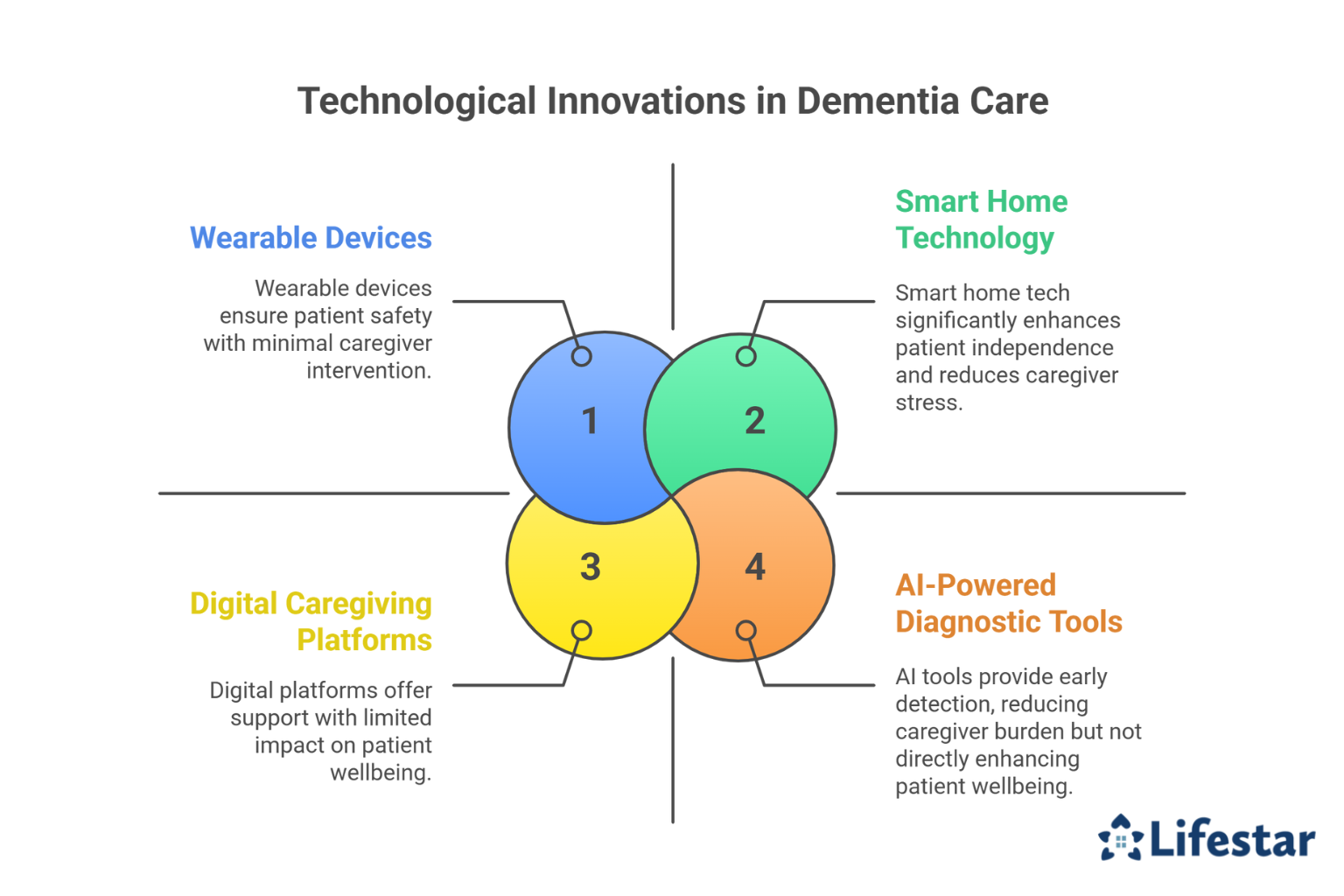
Table of Content
Technology has become a powerful ally in addressing the challenges of dementia care. From boosting wellbeing for seniors with dementia to easing the responsibilities of caregivers, innovative solutions are reshaping how dementia is managed both in clinical settings and at home. Here’s how technology is playing a crucial role in enhancing the quality of dementia care.
Smart Home Technology for Memory Support
Smart home devices are revolutionizing how individuals with dementia maintain independence. Motion-activated lighting, voice-controlled assistants, and automated reminders are just a few tools helping those with memory impairments perform everyday tasks. Devices like Amazon Alexa and Google Nest, for instance, can remind users to take medication, attend appointments, or complete daily routines. Meanwhile, smart sensors can detect movement patterns, alerting caregivers if unusual activity (or lack of activity) occurs.
One of the most challenging tasks of helping an elderly relative age in place safely and comfortably is researching agencies that provide home care. Oklahoma City families can turn to Lifestar Home Care for reliable, high-quality in-home care for aging adults. We offer 24-hour care for seniors who require extensive assistance, and we also offer respite care for family caregivers who need a break from their caregiving duties.

Wearable Devices to Enhance Safety
Safety is a major concern for individuals with dementia, particularly as wandering and falls can pose significant risks. Wearable technology, such as GPS-enabled trackers, provides peace of mind to caregivers by allowing real-time tracking of a person’s location. Similarly, wearable fall-detection devices, like smartwatches with accelerometers, ensure help is dispatched immediately if an incident occurs. These solutions reduce the likelihood of harm and help caregivers respond more effectively to emergencies.
AI-Powered Diagnostic and Monitoring Tools
Artificial intelligence is transforming the early detection and ongoing management of dementia. AI algorithms can analyze brain scans, genetics, and behavioral data to detect signs of cognitive decline far earlier than traditional methods. Additionally, AI-powered apps such as CogniFit and Neurotrack provide tools to monitor the progression of dementia symptoms, offering insights about cognitive performance over time. This level of precision enables a more proactive and personalized approach to treatment.
When it comes to in-home care, using technology can work wonders. However, it’s best not to forget the benefits of hiring professional caregivers. In-home care experts are available to provide high-quality care to seniors on an as-needed basis. From assistance with mobility and exercise to providing transportation to the doctor’s office and social events, there are a variety of ways professional caregivers can help your aging loved one continue to live independently.
Virtual Reality (VR) for Therapy and Engagement
Virtual reality has emerged as a powerful tool to boost quality of life for dementia patients. VR simulations allow users to revisit familiar places, experience calming environments, or engage in interactive activities, which can stimulate memory and reduce anxiety. For example, apps like MyndVR are tailored specifically for seniors, offering immersive experiences designed to evoke positive emotions and enhance mental wellbeing.
Digital Caregiving Platforms and Support Networks
For caregivers looking after individuals with dementia, technology offers solutions that simplify and streamline care. Digital platforms like CarePredict provide tools for tracking daily activities, organizing medications, and setting up reminders. Meanwhile, online caregiving communities connect family members and professional caregivers, offering emotional support and guidance. These platforms promote collaboration and help caregivers feel less isolated in their efforts.
Aging in place can present a few challenges for seniors living with dementia. However, they can still live independently at home with the help of professional dementia care. Oklahoma City families can rely on Lifestar Home Care to provide their elderly loved ones with mental and social stimulation, timely medication reminders, assistance with meal prep, and much more. Our caregivers are available around the clock to help your loved one live a happier and healthier life. To hire a dedicated caregiver, call Lifestar Home Care today.